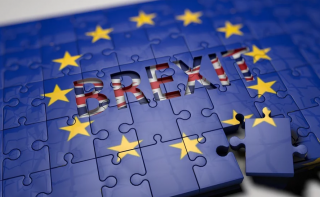As the United Kingdom stopped
being a member of the European Union on January 31, 2020, European ship-owners
have called on both UK and EU regulators to continue their close alignment when
it comes to shipping issues.
being a member of the European Union on January 31, 2020, European ship-owners
have called on both UK and EU regulators to continue their close alignment when
it comes to shipping issues.
The European shipowners
emphasized the importance of including maritime transport in the upcoming trade
negotiations, the European Community Shipowners’Associations (ECSA) said in a
statement.
emphasized the importance of including maritime transport in the upcoming trade
negotiations, the European Community Shipowners’Associations (ECSA) said in a
statement.
“ECSA insists that the only and
most economically sensible future is for the EU and the UK to remain an
integrated and seamless shipping centre.”
most economically sensible future is for the EU and the UK to remain an
integrated and seamless shipping centre.”
Brexit discussions have brought
to the forefront how interrelated EU-UK supply and logistics chains are. Maintaining
the fluidity of EU-UK trade must, therefore, be a priority, the trade
association believes.
to the forefront how interrelated EU-UK supply and logistics chains are. Maintaining
the fluidity of EU-UK trade must, therefore, be a priority, the trade
association believes.
“Shipping companies are part and
parcel of this smooth-running business reality. In addition, mutual market
access to provide maritime services, in areas such as the offshore supply
sector and regular domestic trades, is imperative in sustaining those close
relations going forward,” ECSA added.
parcel of this smooth-running business reality. In addition, mutual market
access to provide maritime services, in areas such as the offshore supply
sector and regular domestic trades, is imperative in sustaining those close
relations going forward,” ECSA added.
“European shipowners strongly
believe the current interconnection of companies and services across both sides
of the Channel should be preserved to ensure the well-functioning of both the
EU/EEA and UK economies,” Martin Dorsman, ECSA’s Secretary General, commented.
believe the current interconnection of companies and services across both sides
of the Channel should be preserved to ensure the well-functioning of both the
EU/EEA and UK economies,” Martin Dorsman, ECSA’s Secretary General, commented.
“It is essential that we secure
the fluidity of trade, continued market access and easy movement of staff and
passengers while maintaining the current level playing field between the EU and
the UK,” Dorsman continued.
the fluidity of trade, continued market access and easy movement of staff and
passengers while maintaining the current level playing field between the EU and
the UK,” Dorsman continued.
ECSA represents the national
shipowners’ associations of the EU and Norway. European shipowners control 40%
of the global commercial fleet and provide 2.1 million Europeans with careers
both onboard and ashore.
shipowners’ associations of the EU and Norway. European shipowners control 40%
of the global commercial fleet and provide 2.1 million Europeans with careers
both onboard and ashore.
World Maritime News.


































































